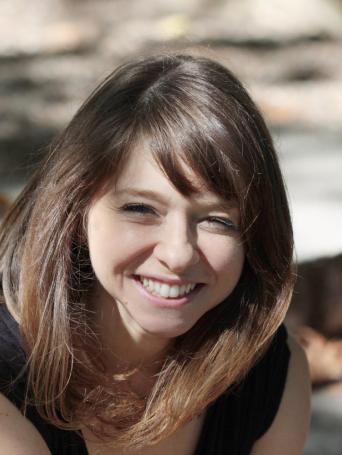MindfulNYU Founder Refuses to Leave the Present

Yael Shy is the founder and director of MindfulNYU.
April 2, 2018
Is there a difference between living and being truly alive? For Yael Shy, senior director of Global Center for Academic and Spiritual Life, the answer lies in meditation.
Shy struggled with crippling anxiety before signing up for a silent retreat that turned her world upside down. After immersing herself in the Zen Buddhist tradition of meditation, she discovered the ways mindfulness could help young people stay present and connected. Shy founded MindfulNYU, the largest campus-wide meditation initiative in the country. Her book, “What Now? Meditation for your Twenties and Beyond,” came out in last November.
WSN: Tell us about your religious background. Did you grow up believing in a religion?
Yael Shy: I grew up pretty observant Jewish, and my mother is a rabbi. Judaism was always a wonderful, deep part of my life. College is when I first went on a Jewish silent meditation retreat, and that was my first entry into meditation. It was not until years later that I started to learn more about Buddhism and dig deeper. I still feel like I live in both worlds, but they work together beautifully and enrich my life in a very meaningful way.
WSN: And I know you had a bit of a breaking point, which is what led you to meditation.
YS: I was totally transformed by the retreat. I remember standing on a corner when it was freezing cold in New York, and the wind was coming in as I was waiting for a bus. But what if instead of thinking, “I hate the cold,” and struggling against it, I thought, “What is cold?” I could get very molecular, feel the coldness on my cheek. Life opened up in a way I hadn’t ever experienced before.
WSN: How would you frame that idea within the larger concept of mindfulness?
YS: Mindfulness is this practice of inhabiting our lives. We live in a world where we’re constantly planning the future, or constantly reliving things in the past, or daydreaming and living parallel to our daily existence. We’re watching a movie of our lives instead of dropping into the visceral experience of being alive. Mindfulness practices help us to drop into what is actually happening now.
WSN: And why is this especially important for young people?
YS: Young people are facing higher levels of anxiety and isolation than ever before, maybe as a result of social media and cellphone use. Even though we’re super connected electronically, it’s promoting an image that does not help us really feel our lives in the world. It causes a lot of suffering and anxiety and pain.
WSN: You write a lot about “waking up to your life” and being present in the world. How can we find balance in a world that expects us to be so digitally connected?
YS: In many fields, you can’t abandon your social media presence. It’s a matter of thinking, “How can I build in different ways to find who I really am?” I try to take a pause from scrolling and say, “Am I trying to escape something? Am I trying not to feel what I’m feeling right now by getting lost in this universe?” Just take those moments to check in, put the phone down for a minute and really be with yourself.
WSN: Do you worry that we’re becoming more and more distant from real life?
YS: It’s almost impossible to say that we’re not. On the other hand, I never like all the hand-wringing about this generation being doomed. There’s not really any going back at this point, so what can we do in this context?
WSN: Any suggestions for how the secular young person can approach meditation?
YS: Buddhism is not necessarily a faith, and in some ways, it’s more of a scientific method. Different traditions have different rituals that start to look like religion, but you can find places that are really very secular. There are plenty of access points for meditation without feeling like you have to take on a religion.
WSN: I love what you write about impermanence, the idea that everything is transient and we have to come to terms with change. Keeping in mind the death we all face can make us appreciate being alive. Can you speak to that?
YS: Knowing that death will come makes you realize, “How am I spending my time? How many hours a day am I on Instagram?” This is really going to happen. It’s not that far away. How do I want to spend my time here?
There’s also the day to day, becoming attuned to this very breath. This breath has a life and a death of its own. Everything changes. I try to watch how much I grasp at things and how much suffering that brings. I’m just trying to be aware of it and remember that everything is going to change. All I can do in the meantime is try to stay open and love what is there to be loved.
WSN: So it’s this process of living fully into the present because nothing beyond that is guaranteed.
YS: Exactly. And before you know it, your entire day, week, life is gone. This is the only thing that’s really true, and you aren’t there for it. This is the life you have. Are you actually showing up?
A version of this article appeared in the Monday, April. 2 print edition. Email Sarah Ellis at [email protected]























































































































































